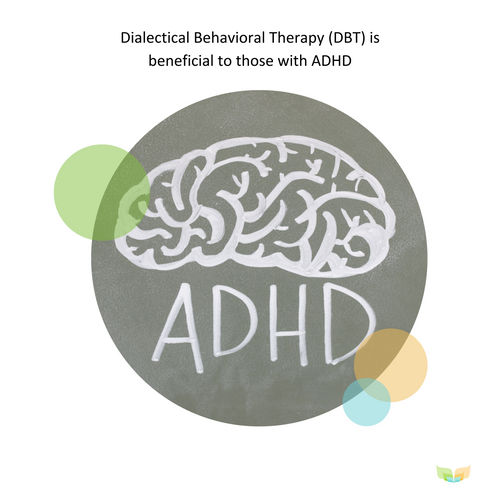Attention Deficit Hyperactivity Disorder (ADHD) is a prevalent mental health condition impacting people across the globe. The disorder is marked by challenges in concentrating, impulsive behavior, restlessness, and other associated symptoms. Although there is no definitive cure for ADHD, there are available interventions to effectively manage its manifestations. Among these approaches, Dialectical Behavioral Therapy (DBT) holds significance. This article delves into ADHD symptoms, various treatment possibilities, and the constructive role that DBT plays within a comprehensive treatment strategy.
The core symptoms commonly linked to ADHD encompass difficulties in sustaining attention or focus on tasks, susceptibility to distraction, impulsive decision-making without foresight of consequences, heightened activity level or restlessness, limited emotional control, feeling overwhelmed in the face of multiple tasks, frequent irritability or agitation, consistent misplacement of items like books or assignments, and regular experience of stress and overwhelm.
Optimal ADHD management involves a combination of medicinal intervention and behavioral therapy. Medications can effectively mitigate hyperactive behaviors and enhance focus in specific ADHD cases. However, medications alone do not address the multifaceted aspects of the disorder. Behavioral therapy assumes a pivotal role in equipping individuals with skills to better navigate their symptoms. This could involve acquiring fresh techniques for organization or strategies to enhance task focus. In this context, Dialectical Behavior Therapy (DBT) emerges as a potent asset in an overall treatment blueprint. DBT, a variant of cognitive-behavioral therapy initially intended for Borderline Personality Disorder (BPD), has been adapted for numerous other mental health issues including depression, anxiety, eating disorders, PTSD, and substance abuse.
DBT offers an advantageous framework for addressing ADHD by emphasizing skills like mindfulness. This technique aids individuals in enhancing attention while fostering self-awareness of thoughts and emotions, enabling better responses to daily situations. Moreover, DBT instills internal motivation through positive reinforcement, which proves especially beneficial for individuals with ADHD struggling with executive function issues. The objective is to empower individuals to self-regulate emotions, circumventing over-reliance on external rewards or punishments, which may not effectively address behavioral challenges linked to ADHD.
In summary, ADHD is a widespread mental health concern that lacks a definitive cure, yet management approaches such as medication and behavioral therapy, including DBT, are available to alleviate its effects. DBT's focus on mindfulness and the cultivation of self-regulation skills makes it particularly relevant in ADHD treatment. By embracing a comprehensive approach that combines medical assessment and evidence-based therapies like DBT, those affected by ADHD can aspire to lead more fulfilling lives, liberated from its demanding symptoms.
For inquiries about Innerspace Counseling’s Intensive Outpatient (IOP) and Partial Care programs, which encompass tailored assessments, individual therapy, DBT group therapy, medication management, and family sessions, please reach out to us at 732-332-8270.

